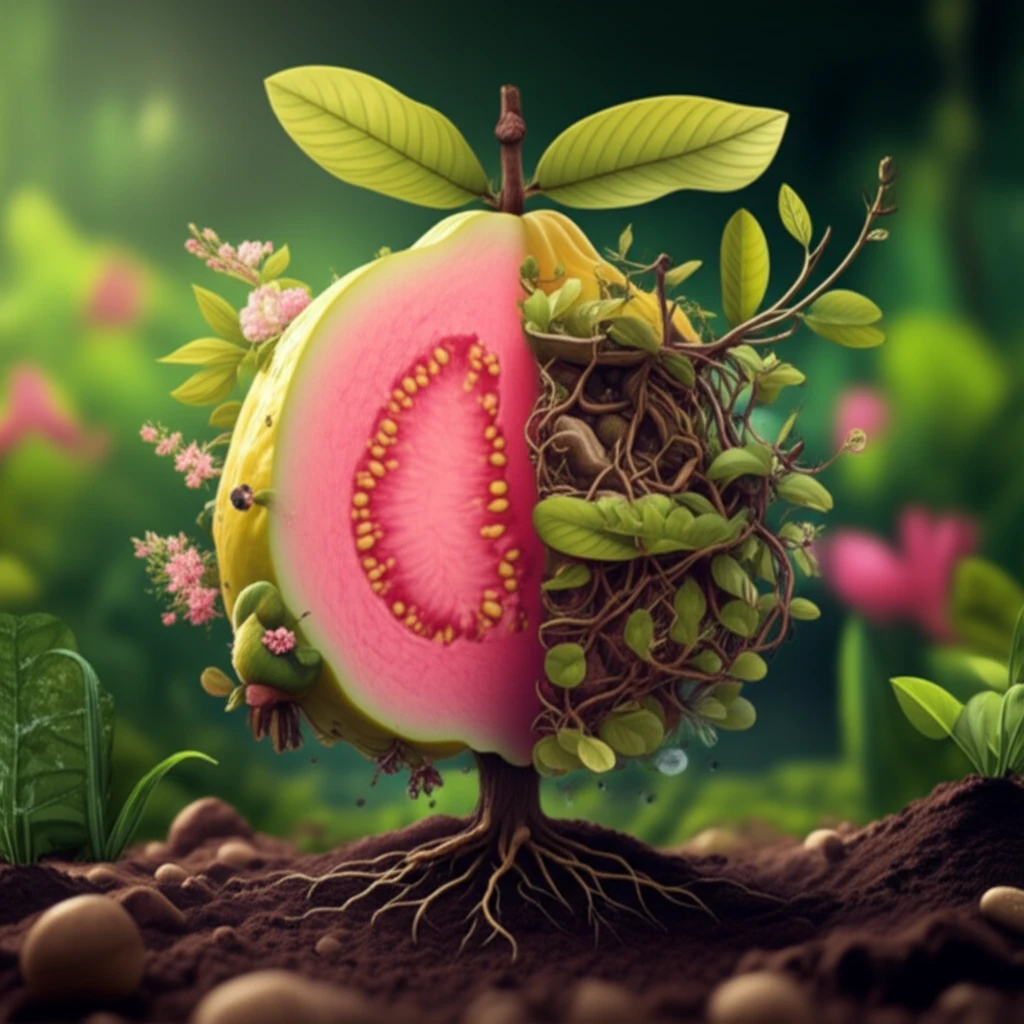
Guava Waste: The Unexpected Garden Booster?
"Unlock the secret to transforming guava byproducts into a powerful soil amendment and sustainable fertilizer alternative for your garden."
In a world increasingly focused on sustainability and eco-friendly practices, the search for effective and natural soil amendments is more crucial than ever. While commercial fertilizers have long been the go-to for boosting plant growth, they often come with environmental drawbacks and high costs. But what if the answer to healthier soil and thriving plants was already available, hiding in plain sight as an agricultural byproduct?
The guava fruit, celebrated for its delicious flavor and nutritional benefits, is a significant crop in many tropical and subtropical regions. However, the processing of guavas into juices, jams, and other products generates substantial organic waste, primarily consisting of seeds and pulp. Traditionally, this byproduct has been discarded, posing disposal challenges and potentially contributing to environmental issues. But new research suggests this so-called "waste" is a goldmine of nutrients that can be harnessed to improve soil fertility.
Recent studies are spotlighting the potential of guava processing residue as an organic soil amendment. This material, rich in essential nutrients, can enhance soil structure, improve water retention, and provide a slow-release source of nourishment for plants. By repurposing this agricultural byproduct, gardeners and farmers can reduce their dependence on synthetic fertilizers, promote sustainable practices, and turn what was once considered waste into a valuable resource.
Guava Power: How Guava Waste Transforms Your Soil

Research published in IDESIA (Chile) has explored the effects of incorporating guava processing byproducts into an Ultisol, a type of soil common in tropical areas, both with and without mineral fertilization. The findings reveal that this organic waste can significantly improve soil health and fertility. Let’s break down the key benefits:
- pH Balance: The study observed a slight decrease in pH value with the increase in guava byproduct doses, indicating increased soil acidity. Mineral fertilizers amplified this acidification, but the change can actually help in making nutrients more accessible for certain plants.
- Boosts Organic Matter: Incorporating guava waste significantly increases the organic matter content of the soil. Mineral fertilization enhances this effect, contributing to improved soil structure, water retention, and overall fertility.
- Potassium Power: Guava byproducts act as a natural potassium booster, leading to a notable increase in potassium levels in the soil.
- Micronutrient Marvel: The addition of guava processing residue positively influences the availability of essential micronutrients like boron, copper, iron, and zinc, vital for plant health and development.
Turning Waste into Wonder: Sustainable Gardening with Guava
The research underscores the remarkable potential of guava processing residue as a sustainable soil amendment. By repurposing this readily available agricultural byproduct, gardeners and farmers can not only enrich their soil and reduce their reliance on synthetic fertilizers but also contribute to a more circular and environmentally responsible approach to agriculture.
